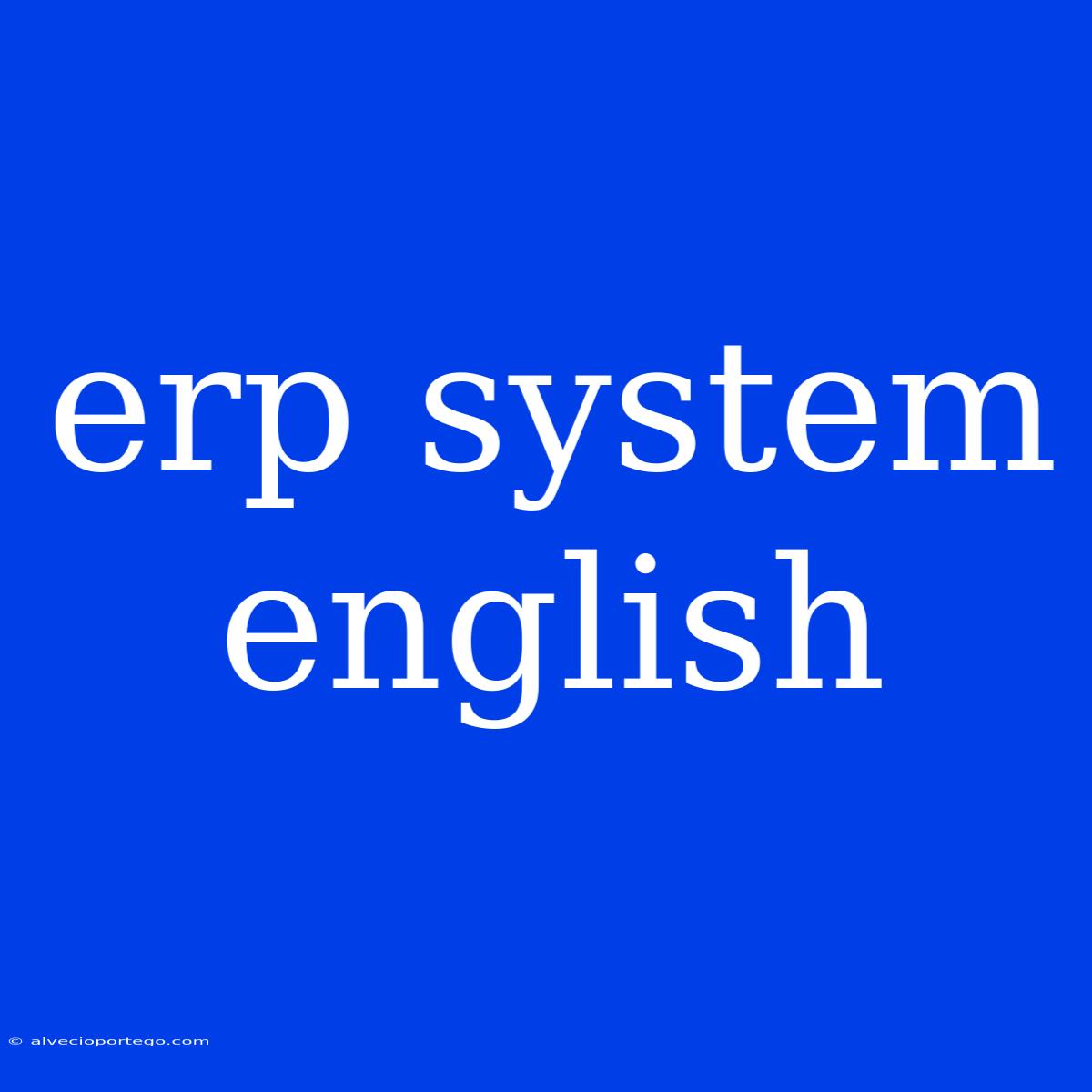ERP Systems: A Comprehensive Guide
An Enterprise Resource Planning (ERP) system is a software solution that integrates all aspects of a business into a single, unified system. This system manages and automates critical business processes, offering a comprehensive view of operations and enabling better decision-making.
What does ERP do?
ERP systems consolidate various business functions like:
- Finance: Accounts payable, accounts receivable, budgeting, financial reporting
- Human Resources: Payroll, recruitment, training, performance management
- Supply Chain: Procurement, inventory management, production planning, shipping
- Sales & Marketing: Customer relationship management (CRM), marketing automation, order management
- Operations: Project management, quality control, maintenance
Benefits of Implementing an ERP System:
- Improved efficiency: Automating manual tasks and streamlining processes can significantly boost productivity.
- Enhanced visibility: Real-time access to data across all departments offers a comprehensive overview of the business.
- Better decision-making: Accurate and timely data empowers informed decision-making, leading to better outcomes.
- Increased profitability: Streamlined processes, reduced costs, and improved efficiency can significantly impact profitability.
- Reduced risk: Improved visibility and data accuracy minimize errors and potential risks.
- Enhanced customer satisfaction: Improved efficiency and streamlined processes lead to faster order fulfillment and better customer service.
Choosing the Right ERP System:
Selecting the appropriate ERP system is crucial. Consider factors such as:
- Industry: Different industries have specific requirements and challenges, so choose a system designed for your industry.
- Size of business: The system should scale with your business growth and handle the volume of data.
- Budget: ERP systems come with varying costs, so choose a system within your budget.
- Features: Determine the features you need and ensure the system supports them.
- Implementation process: Choose a system with a smooth and efficient implementation process.
The Implementation Process:
Implementing an ERP system is a complex process that requires careful planning and execution.
- Planning: Define your business requirements, objectives, and project scope.
- Selection: Choose the right ERP system based on your needs and budget.
- Implementation: Set up the system, configure it for your specific processes, and train your employees.
- Go-live: Launch the system and monitor its performance.
- Ongoing support: Maintain and upgrade the system to ensure continued performance.
Key Considerations:
- Data migration: Transferring existing data to the new system is a critical step.
- User adoption: Encouraging user adoption is crucial for successful ERP implementation.
- Training: Adequate training is essential for users to effectively utilize the system.
- Integration: Integrating the system with other software applications is vital.
- Security: Ensuring data security and compliance is paramount.
Conclusion:
Implementing an ERP system can be a transformative step for any organization. By streamlining processes, improving visibility, and enhancing decision-making, ERP systems contribute to greater efficiency, profitability, and overall business success.

